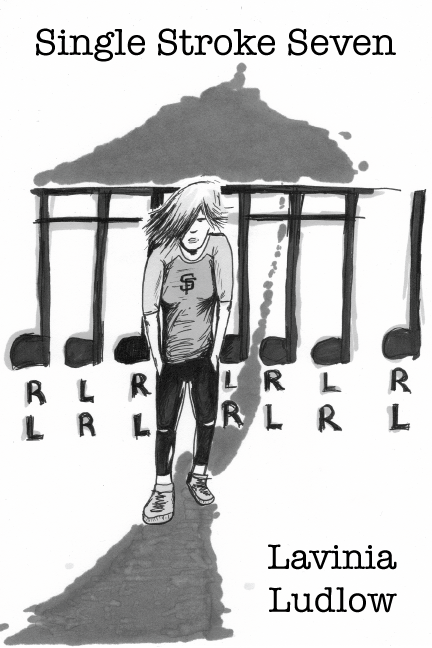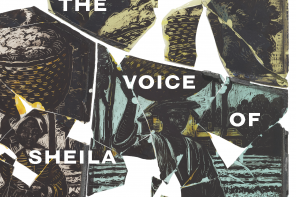One time, I went to visit a friend in Los Angeles.
Please note that I have always been worried about things like health insurance and saving for retirement. I am an old married guy, a father, and I didn’t write a sentence in a remotely creative fashion until I was 30 years-old.
It’s possible I was scared. Or that I didn’t know how to channel my passions. It’s also possible that I didn’t know what my passions were. That all of this was compromised by my need to be stable, safe and controlled, possess that health insurance and those retirement dollars. That this manifested itself in my need to hold a 9-5 job with structure and hierarchy and all the things I thought I needed to maintain my sanity.
I tell you all of this, because I was in Los Angeles and I met this old friend for dinner. He is a musician and an artist. He is charming and talented. He is the spawn of my small town, solid, intelligent parents, varsity sports, public schools, all of it. He was in it though, going for it, wanting, trying, to be an artist and the house he was living in was fucking dumpy–ratty carpet and couches, faux wood paneling–and even dumpier than the kinds of places we lived in during college.
It had a recording studio, however, so I got it, but it felt wrong, for our age, for him, and so maybe I didn’t get it, the trade-off, and the desire to make it even if it meant living like this. I had never lived like that, and I’m not sure I ever could. He was happy though, it was what was required for him, or necessary to him. But I never quite forgot it. The confusion I felt at that choice. The lack of choices I made then, and continue to make.
All of which came back to me as I read Single Stroke Seven by Lavinia Ludlow.
What you need to know about Single Stroke Seven and Ludlow’s cast of characters, led by Lilith–who holds down a day job even as she tries to hold her band together–is that they try to make music, they fight with themselves and other bands, they feel longing and loss, they live like my old friend, and they live like they live because they want to make music and nothing else. Not even eating, or sex, or a decent place to live matters as much as that.
There is one key difference though between Ludlow’s characters and my friend and I–they don’t work, or barely work because they don’t want to, but even when they do want more from work– and aren’t maligning those who have somehow figured something out–they barely have access to work regardless.
They don’t know what it means to walk out of college and know as we did that there would be something available to us, even if we chose to ignore it. They are victims of this recent downturn in the economy, the college loans and the lack of opportunity, the pressures that come with it.
More than that, they are the victims of world that doesn’t seem to care much whether they have work or not.
Every summer has sucked harder than the last . . . ’09 was the summer of an imploding economy and 12% state unemployment, when most of us were out of a job . . . ’10 was the summer of 12.6% state unemployment, when degreed professionals flooded the hourly job market and most of us were competing against them for minimum wage work like beads at Mardi Gras . . . ’12 through ’14 felt like a blur of all the above, only I became skeptical of ever getting ahead enough to break free of poverty.
And in this way, Single Stroke Seven is also a kind of manifesto for a generation traumatized by this lack of opportunity and the ability to live an authentic life, and if you’re my age, you know little of that kind of trauma. Not that they even seem to know they are traumatized. They know how much everything sucks, but they don’t quite realize that this trauma has skewed their ability to see straight or make good choices. They just know that they want more want more, and they want to get out of their busted-ass home, and their busted-ass heads.
They just can’t get out of their own way.
They don’t know how–no one has shown them, much less told them they could–and they’re scared to take chances. Further, while they are willing to romanticize their lost generation, and embrace all kinds of loss for their art, they’re also scared that doing so might involve selling out, and that might even be worse than a lack of heat or food.
What they don’t see is that this is also an excuse. That every generation has a level of suck they must navigate. That it is easier to be scared and self-righteous than take chances to move beyond the geographic and emotional boundaries this trauma has confined them to.
They’re still young, mind you, just not for much longer, and if they are unwilling to take chances, than they aren’t much different than I was at all.
Except that Ludlow’s people ultimately do, and in that way Single Stroke Seven is also about triumph, and longing, because it’s not just that they want it, it’s that you as the reader, and maybe a parent to young people yourself, want something, anything to happen so badly for them. And frankly we, I, want that for Ludlow too–her generation’s chronicler of suck–and we want it much sooner than later.
Ben Tanzer is the author of the new (sort of) memoir Be Cool and can be found online at tanzerben.com, the center of his vast lifestyle empire.




